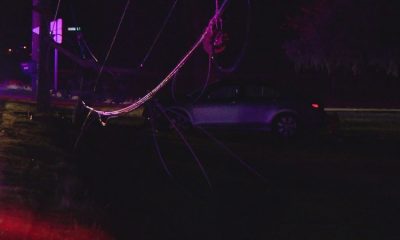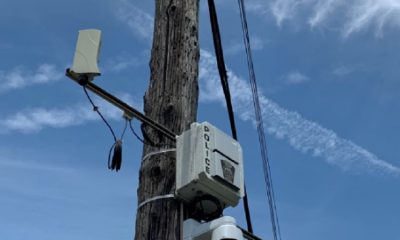Local News
Literacy bill that would hold back thousands more third graders advances in Indiana

Indianapolis, Indiana – Legislators in Indiana adopted a bill on Tuesday that will prevent thousands more third graders from moving on if they fail the state’s reading exam. Opponents of the bill claimed it would burden schools and harm children’s emotional development.
About 18% of third graders in Indiana failed the state’s reading assessment last year, according to the Indiana Department of Education. Republican lawmakers contend that too many students who fail it get away with it and go on to the fourth grade.
Second graders would have to take the crucial reading test—currently optional for that grade—if the idea is passed into law to receive an early indication of their academic progress. Students would not have to retake it in the third grade if they pass.
Students may enroll in summer school and retake the exam if they fail the third grade again. They will be held back from the fourth grade if they decide not to or if they fail the test after three attempts.
An estimate connected to the measure states that beginning with the 2025–2026 school year, almost 7,000 additional pupils will repeat third grade.
Mostly along party lines, the state House voted 69-27 to move the legislation forward. The state Senate, where the bill first started, must give it their final approval before it can reach Republican Governor Eric Holcomb’s desk. Along with the state Education Department, he is in favor of the bill.
Following ten years of declining reading rates, a large number of Republicans, who currently hold both houses of the General Assembly, argue that students now require the intervention.
“The retention piece of this bill has received the majority of the attention,” the bill’s Republican sponsor, state Rep. Jake Teshka, told lawmakers Tuesday. “It’s really a bill about early intervention and giving a student every possible opportunity to read by third grade.”
Certain pupils with disabilities and English language learners are among the exemptions allowed by the measure. Additionally, it creates reading evaluations for kindergarteners so that educators and parents are aware of their progress.
Democrats in the statehouse have voted repeatedly against the plan, claiming that it will put a burden on school resources by holding back pupils. Some claim that delaying pupils can have negative social and psychological repercussions.
Like many other states, Indiana last year instituted a phonetic strategy—often referred to as the science of reading—and modified the way that elementary school students are taught to read. Opponents claimed Indiana lawmakers ought to wait to make more adjustments until schools had had a chance to fully execute the policy.
On the House floor on Monday, a Democratic attempt to postpone the retention policy for a year was defeated.
“Why do we continue to come here year after year and change the way we do education for our kids?” the Democratic floor leader, state Rep. Cherrish Pryor, asked lawmakers Tuesday. “The kids can’t keep up with it, the teachers can’t keep up with it, the parents can’t keep up with it. I don’t know who can keep up.”
-

 Local News2 weeks ago
Local News2 weeks ago3 Indiana school districts asking voters for funding in May primary election
-

 Local News2 weeks ago
Local News2 weeks agoHendricks Co. Sheriff’s deputy dies after being electrocuted at crash scene
-

 Local News2 weeks ago
Local News2 weeks agoMyles Rice, a former Pac-12 Freshman of the Year, has committed to Indiana
-

 Local News2 weeks ago
Local News2 weeks agoIndiana limits abortion data for privacy under near-total ban; some GOP candidates push back
-

 Local News1 week ago
Local News1 week agoMan who won the primary election despite being accused of murder was found guilty of a lesser crime
-

 Local News2 weeks ago
Local News2 weeks agoRepresentative from Indiana invites people to attend the IBLC town hall series
-

 Local News1 week ago
Local News1 week agoA decrease in gun violence signifies South Bend’s accomplishment
-

 Local News1 week ago
Local News1 week agoWhile searchers continue to look for missing kayakers, experts warn of a deadly dam in the White River






Leave a Reply